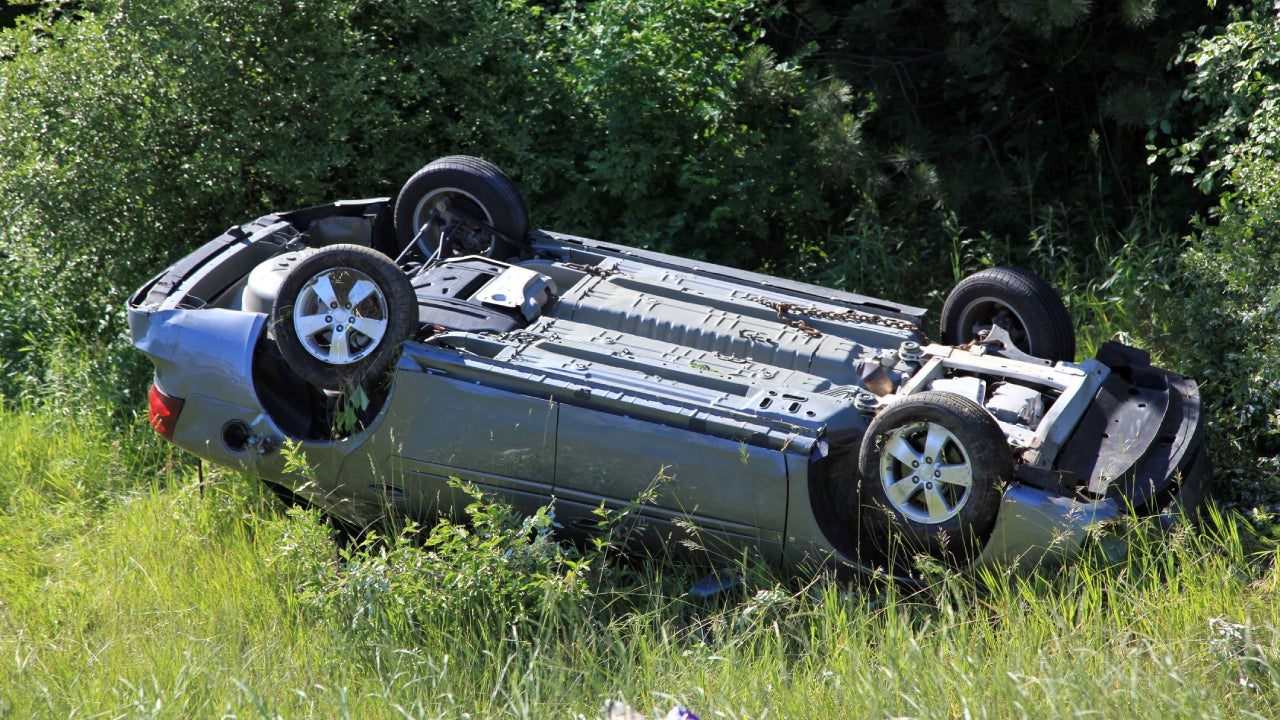Understanding your insurance offer after an accident

If you choose to file a claim with your insurance company after an accident, you can expect a car accident insurance payout if your claim is approved. Although that sounds simple enough, car insurance payouts can get complicated, especially if you and the insurer disagree on the amount. Bankrate’s insurance editorial team created this guide to help you understand your rights and responsibilities after an accident so that you can claim the best payout possible to cover your losses.
Can you negotiate an insurance offer?
You may be able to negotiate with your insurer after you file a claim, making a counter offer to the car insurance company that more accurately reflects your losses. To have the best chance of success, consider the following steps:
- Once you’ve received the offer, ask your insurer to explain how it arrived at the figure. You should be able to receive a more detailed explanation of the costs involved.
- If there is additional information or context you can provide, do so in a written notice. For example, if an injury turns out to be more serious than originally thought, there might be additional medical costs. Provide proof of these costs with your notice.
- Keep all communications with the company polite and professional. Avoid communicating with the company when you are feeling frustrated—wait until you are calm and can state your case logically.
- Along with your explanation, make a counter offer that you feel is fair. Include copies of all bills and other documentation to back up your counter offer.
- It is generally better to communicate with your carrier by email or postal mail rather than phone, so that you have documentation. Ask for a follow-up notice by mail if you do receive any significant notices by phone to avoid verbal miscommunications.
If you’ve taken these steps and are still struggling to reach a compromise with your carrier, you might need to consider getting a public adjuster or your state’s department of insurance involved.
How to handle different kinds of insurance offers
You could get an insurance offer that does not meet your expectations. If this happens, consider asking the questions you may have before reacting and then formulate a response.
When the damage is considered a total loss
If your car is damaged in an accident, you will either file a claim against the at-fault driver’s property damage liability coverage or your policy’s collision coverage. If the estimated cost of repairing your vehicle is greater than the actual cash value of your car, your car will be declared a total loss. In some states, the damage only needs to be greater than a portion of the vehicle’s value. A total loss also applies if your car is stolen, in which case you would file a claim against your comprehensive coverage.
If you disagree with the insurance adjuster’s calculation, you will need to prove that the car is worth more than your insurance company’s estimate. An example of a car having a higher value might include having previously made improvements to your vehicle. Otherwise, your insurance company will pay you or your leasing company the market value of your car, minus depreciation. This figure is often different from the Kelley Blue Book value and sometimes can be less than the total amount you still owe on your car. If you have a loan or lease on a newer vehicle, you may want to consider gap insurance.
When the offer is lower than you expected
Although financial responsibility after an accident will vary depending on your state’s insurance laws and the particulars of the accident, keep in mind that if your insurance company is the one paying out the claim, you must have the right coverage types in order to receive a payout. For example, if your car is damaged in an accident you caused, you’ll need collision coverage to pay for the damage. If you only carry minimum coverage car insurance, you will need to pay for damage to your car on your own. Additionally, you’ll need to consider your coverage limits; if the damage exceeds your coverage limits, you will be responsible for paying the difference.
Some other considerations include the following:
- In some cases, you may be entitled to compensation to cover lost wages, but this depends on the type of insurance you have. If you live in a no-fault state, a type of insurance called personal injury protection includes coverage for wage reimbursement.
- If you live in an at-fault state, your medical bills should be paid by the insurer for whichever driver was at fault in the accident. Generally, there will not be coverage for lost wages.
- Review all paperwork you receive from your insurer for accuracy. If you find errors, Submit documentation to your insurer that shows the error.
- Consider getting an independent estimate for all repair costs, or even estimates from multiple mechanics.
- With all documentation at hand, provide your insurer with a written counter offer.
- If your counter offer is rejected, you may want to consider hiring a lawyer or public adjuster.
When the adjuster uses the “betterment clause”
Most car insurance policies include a betterment clause that requires the policyholder to pay a fee if the repairs to the vehicle improve its condition when compared to before the accident. For example, if a mechanic uses new parts to repair an old car and therefore adds to its value, you might be required to pay a betterment charge.
If you want to reject your insurance company’s offer because of a betterment charge, you will need to prove that the necessary repairs do not add value to your vehicle. It can help to provide a statement from your mechanic or another expert when submitting your counteroffer.
How a car insurance claim payout and settlement works
After negotiations, you and your insurance provider will agree to the settlement in writing. When you receive your payout less your deductible, it is important to understand what to do with your car insurance claim payout. Depending on your insurer and your state, you may be required to use the funds for the intended purpose as defined in the payout. In some situations, you may be able to cash the check and utilize the funds at your own discretion. Be sure you understand what you are legally allowed to do with the money before spending it.
Your insurance company might make out the check to you and the repair shop, in which case you would need to sign the check over to the mechanic. Otherwise, your insurer might require that you show proof of repair. If your car is financed, your finance company may either be included on the check as a payee or have a say in where the vehicle is repaired.
Frequently asked questions
-
If an insurer denies your car insurance claim, there are options for recourse. First, you should ask questions to understand why the claim was denied. There may be exclusions in your policy or you may not have sufficient coverage. If you still disagree with your insurance company, you could then collect evidence to appeal the denial in a formal letter.
-
If you do not agree with your insurer’s settlement offer, you can always negotiate with your insurance company. It helps to gather additional evidence before submitting a letter to your insurance company asking for an updated offer.
-
In 2022, the average claim check was $24,211 for bodily injury liability claims and $5,313 for property damage liability claims. The average collision claim payout was $5,992 and the average comprehensive claim check was for $2,738. These average costs illustrate why most insurance experts recommend purchasing additional coverage types and higher limits if you can afford to do so. For most drivers, the cost of coverage is relatively low compared to the potential cost of an at-fault accident.
-
The amount of car insurance you need will depend on several factors. Most states have minimum liability requirements for what you must carry to comply with state laws. In addition to these minimum coverage requirements, you will want to determine what the best policy is based on your budget and risk tolerance level. Although adding collision, comprehensive, towing, or rental coverage, or even increasing your liability limits can cost more in annual premiums, you may feel more comfortable on the road knowing you have robust coverage.
-
The amount that insurance premiums may increase after an accident depends on a number of factors, the most important of which is who is at fault for the accident. The average cost of full insurance coverage can increase by nearly 50 percent or more per year if you are found to be at fault for an accident. You may experience smaller increases in your insurance premium even if you are determined not to be at fault because insurance companies consider that to be an indicator of potential future accidents. Bankrate’s July 2024 research shows that the average premium for a driver with full coverage goes from $2,278 with no infractions on their record to $3,358 after an at-fault accident.
Why we ask for feedback Your feedback helps us improve our content and services. It takes less than a minute to complete.
Your responses are anonymous and will only be used for improving our website.
You may also like

What is an insurance claim and when should you file one?

What are the different types of car insurance coverage?

What is total loss car insurance?





